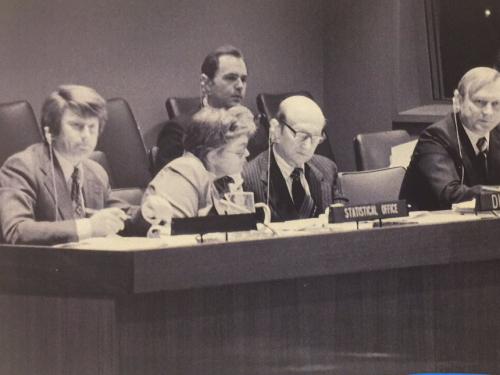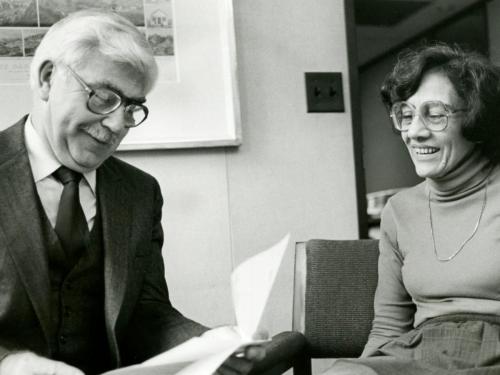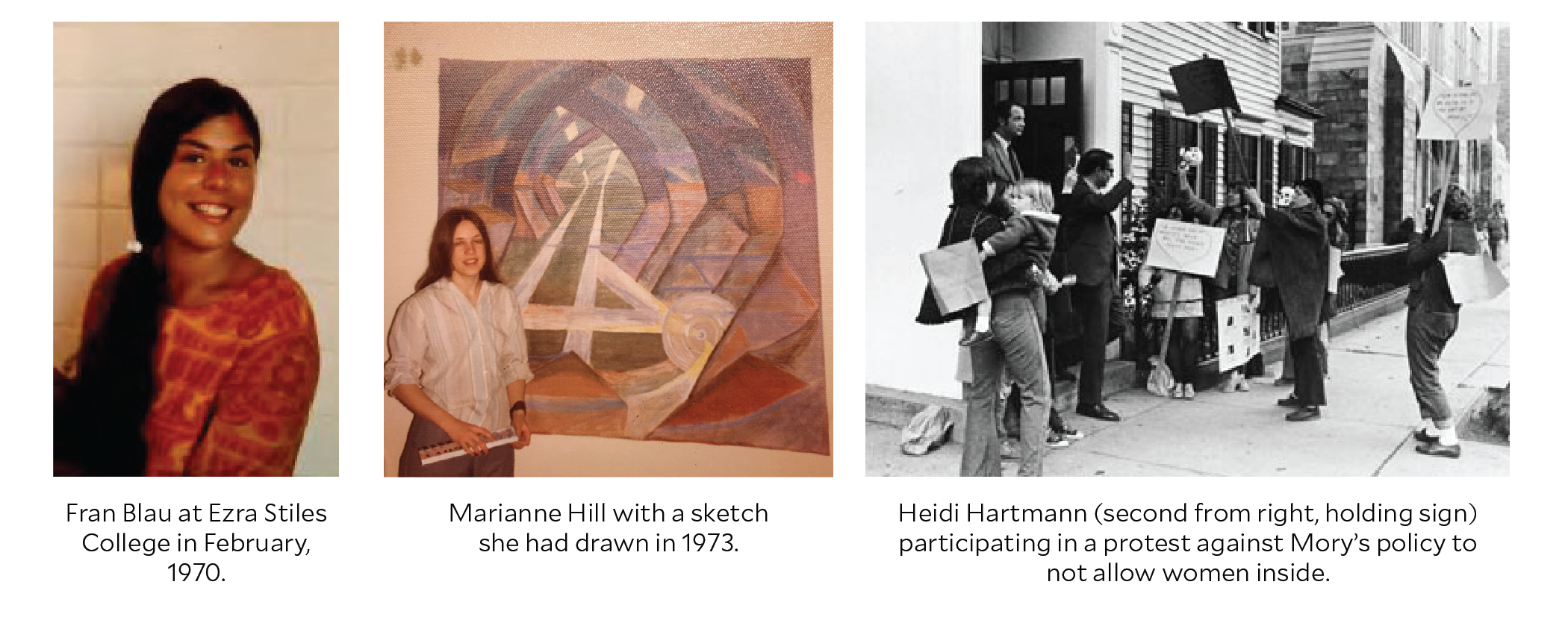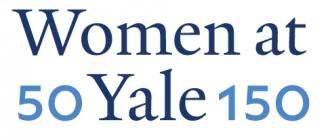"Economics is not a man's field"
In honor of the Economic Growth Center’s 60th anniversary during the 2020/21 academic year, we are telling the stories, not only of well-known faculty who helped build EGC’s name and the field of development economics, but also members of the EGC community whose contributions have been overlooked, including women and international visiting scholars.
Below, you can read the stories of some of the pioneering women who helped found EGC, made inroads in Yale Economics as students and faculty, and pushed for equality in academia.
Pioneering Women: Economic Growth Center and Yale Economics
A virtual panel discussion September 26, 2020 honored the women who helped found EGC and pushed for equality in the economics profession. It coincided with a weekend celebration marking the anniversary of coeducation at Yale, and launched EGC’s 60th Anniversary celebration year.

In the 1970s, Birdsall arrived at EGC as an untraditional economics student. Driven by a commitment to independent, policy-based research, she would go on to change how rich countries and the powerful institutions they control approach global development.

The University of Massachusetts professor emerita and former EGC postdoc looks back on her Texas roots and her pioneering career focused on gender, inequality, and care work.

As a graduate student, Heidi Hartmann demanded an end to sexism at Yale. She has gone on to found a feminist think tank and conduct economic research that has informed policy decisions by Congress, the White House, and the Supreme Court, as well as states across the US.

The Chief Economist of the European Bank for Reconstruction and Development looks back on her childhood in socialist Poland and a path-breaking career of research and policy efforts to support countries’ transition to market-based economies.

The former Greek Minister recounts how her time at Yale laid the groundwork for a career dedicated to sustainable development and policymaking in the public interest.

The women of EGC's founding team
When the Economic Growth Center was founded in 1961, three women were hired to provide research and administrative support. All three had PhDs and happened to be married to Yale economics professors. However, six years later, all were required to leave their jobs amid a flash of concern about nepotism. Despite the setback, the women went on to outstanding careers of their own.
Giving economist Nancy Ruggles her due
Nancy Ruggles, a Harvard PhD in economics, co-authored essentially all of her husband Richard Ruggles’ work during her lifetime, but was never offered a faculty position of her own. This article traces her life and career and honors the contributions she rarely received credit for during her own lifetime.

"Not a man’s field": Mariam Chamberlain & the Yale Economic Growth Center
Mariam Chamberlain was also let go by the EGC, but after her initial setback became an officer at the Ford Foundation, where she became known as the “fairy godmother of women’s studies.” This article highlights Chamberlain’s work to advance the status of women in academia, especially within economics.

Mary Reynolds' pioneering role at Yale EGC – and in literary studies
Mary Reynolds put her love of literature on hold early in life because she felt it was less practical than political science. But after she left the EGC, she devoted herself to the study Irish literature and became a world-renowned James Joyce scholar.
 Photo courtesy of Anne Skinner
Photo courtesy of Anne Skinner
Students, staff, and faculty making a place for women in Academia
The women who were in the first coeducational classes at Yale Economics and the few women faculty and staff in the 60s and 70s faced many obstacles. Not only did they thrive in their careers, they demanded that academia change, innovate, and become more inclusive.
Eggers broke barriers as the first woman to win the Eckert-Mauchly Award in 2018 for her contributions to the field of computer architecture. Her interest in computer science started in her role as a secretary at EGC in the 60s.

From an early polio infection to departmental barriers in her career, Taft Morris experienced discrimination firsthand. Yet, her determination wouldn’t allow it to prevent her from becoming an influential mentor, advocate, and economist.

After a successful stint at USAID, Goldfarb joined the EGC as the first female economics faculty member at Yale. Later, she would go on to become an influential health economist while simultaneously advocating for women in academia.

The Committee on the Status of Women in the Economics Profession (CSWEP), a vital force for equality in the profession, owes its existence in large part to Yale women. Fifty years ago, Yale graduate students pushed the American Economics Association to recognize that “economics is not a man’s field” and establish the AEA’s first committee to address gender discrimination.
The 1971 AEA was a heady experience for a second-year graduate student. Watching President J.K. Galbraith herd our resolution to passage was amazing — one year’s worth of activism paid off big. It was also exciting to meet Joan Robinson who spoke to some of us personally. CSWEP was one outcome of our efforts and several years later, under the leadership of another Yale PhD in economics — Heidi Hartmann — many of us were involved in launching the Institute for Women’s Policy Research (IWPR). And then, a couple of years later, the International Association for Feminist Economics in 1990!! Also, as a result of IWPR’s report on the status of women in Mississippi, I worked with others in Mississippi to pass legislation establishing the Commission on the Status of Women in Mississippi. All started in New Haven!
– Marianne Hill M.A. ’74 M. Phil ’74 PhD ’83 reacts to the series

All three women were part of a group of graduate students in New Haven who pushed the American Economics Association to address gender discrimination.
